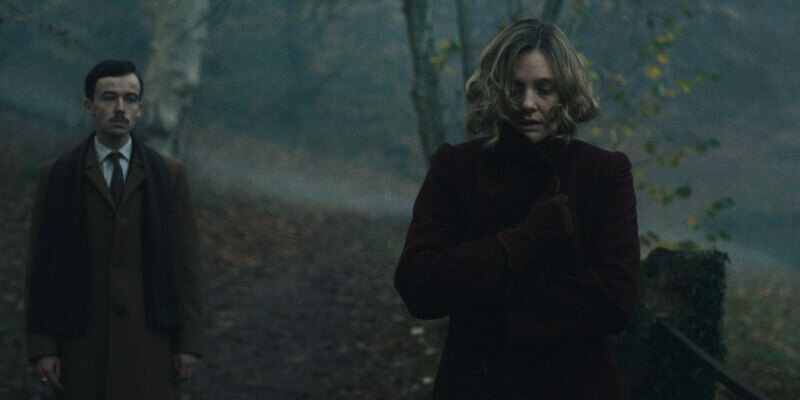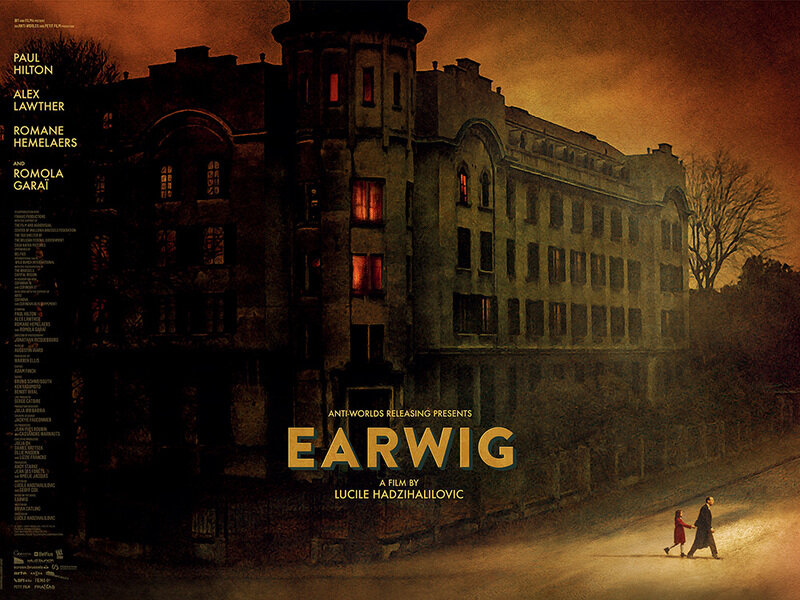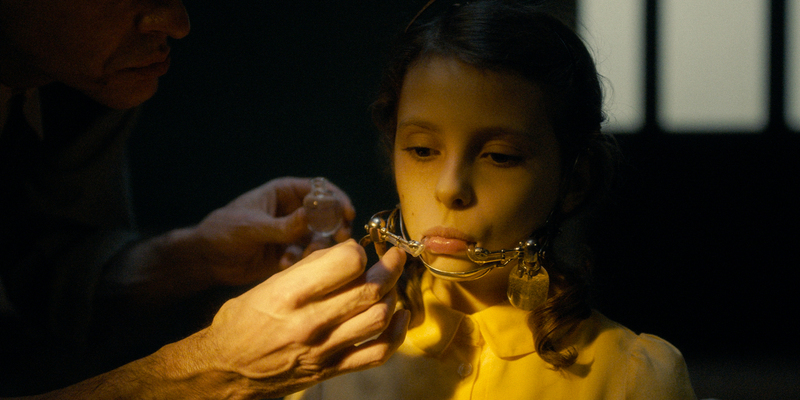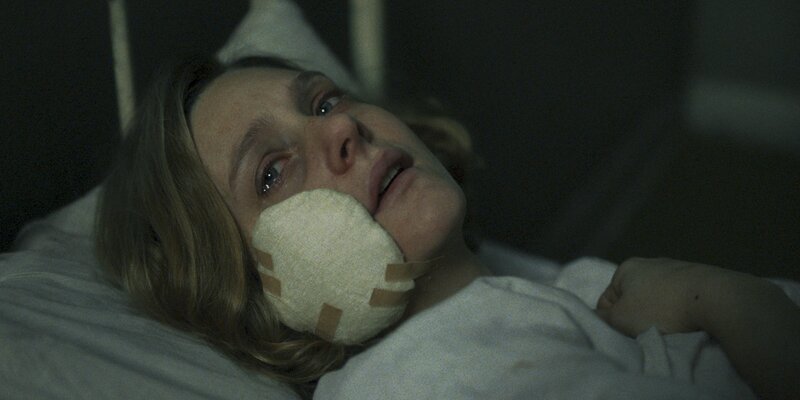
Review by
Eric Hillis
Directed by: Lucile Hadžihalilović
Starring: Paul Hilton, Romane Hemelaers, Romola Garai, Alex Lawther

There's a memorable sequence in Woody Allen's
Stardust Memories in which Allen imagines himself stuck on
a train filled with the most depressed looking individuals imaginable.
Across the platform is another train, this one filled with partying
beautiful people, including a young Sharon Stone. Should you find
yourself in a cinema watching Lucile Hadžihalilović's
oppressively gloomy Earwig, you might begin to feel like Allen's protagonist as you strain to
hear the sounds of
Top Gun: Maverick
emanating from the next auditorium.
Allen was parodying a very European tradition of glum arthouse
miserabilism, and while there are no laughs in Earwig, it's difficult not to view it in similar terms. Like her previous
film, the Lovecraftian
Evolution, Hadžihalilović's latest plays like a 20 minute short that has been
stretched out to feature length like a chewed piece of gum between an
adolescent's teeth.

Speaking of adolescent teeth, they play a key role in the non-narrative
of Earwig. Young Mia (Romaine Hemelaers) has no teeth of her own, and so
every morning the strange man, Albert (Paul Hilton), who looks
after her/keeps her captive fits her with a set of teeth made of ice.
That night her melting teeth are collected in a device strapped to her
mouth that allows the water to drip into two small containers next to
her cheeks. This device is credited to
Delicatessen director Marc Caro, which raises the
question of whether he was enlisted by Hadžihalilović to design the
curiosity or whether he's had it knocking around for a while and finally
convinced a fellow filmmaker to put it to use.
Albert appears to be looking after Mia for an unseen man who
occasionally checks in by telephone, on a particularly crackly line.
Each call sees Albert assure him all is well, but one day he is
instructed to prepare Mia to leave in a couple of weeks and get the
child accustomed to the outside world. That outside world, a Kafka-esque
approximation of post-war Central Europe, is as glum as the nicotine
stained apartment the pair live in.

Another sub-plot emerges involving a local barmaid (Romola Garai) who is injured and taken in by a young doctor (Alex Lawther).
Things really begin to become confusing as a parallel timeline appears
to emerge, with elements of the story overlapping. Time and identity
begin to blur as the film becomes a sort of Last Year at Mulholland
Drive. We're left to ask unanswerable questions as to whether Garai
represents the grown-up Mia (there is no resemblance between the two
actresses), or Albert's dead wife, who is played in flashbacks by
another actress, which might be taken as a nod to Bunuel. If
Hadžihalilović's film is a jigsaw puzzle you can't help but wonder if
she's purposely thrown away the corners just to baffle us further.
Adding to the discomfort is a soundscape that will have you worrying
you've developed tinnitus. A recurring motif sees Albert running his
fingers around the rim of a glass, replicating a noise that seemingly
once delighted his wife. It eventually hangs in the air like feedback at
a Neil Young concert.

What does it all mean? I have no idea, and that's perfectly fine. I've
always favoured mood over plot, but the mood here is dreary to an
intolerable degree. Hadžihalilović began her career as a collaborator of
Gaspar Noe, a filmmaker often accused of being nothing more than a shock
merchant. That's an accusation that certainly can't be leveled at
Hadžihalilović, whose films could honestly use a shock or two to keep us
awake.


